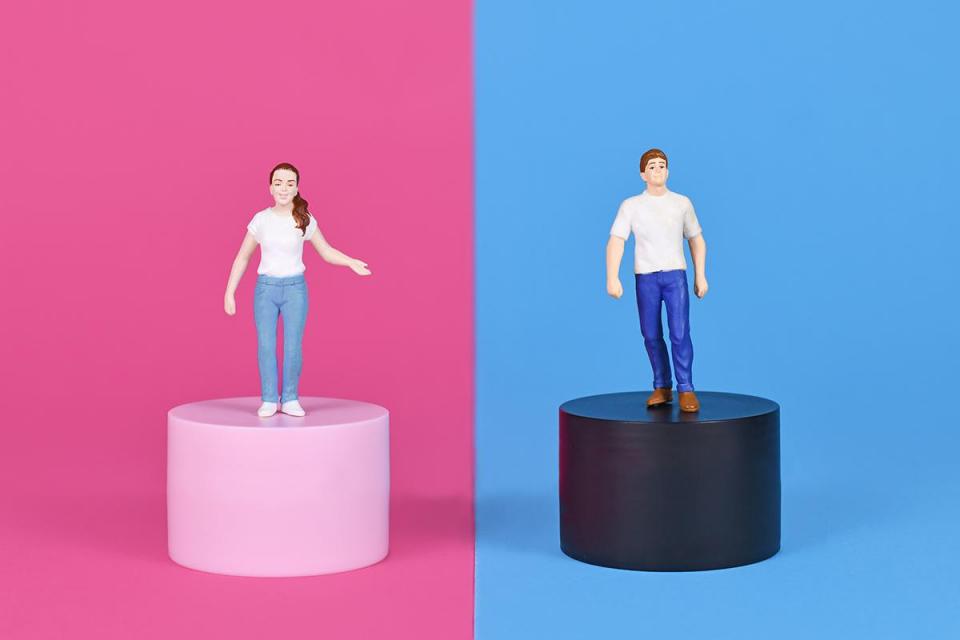The challenges of gender – Renee Laiviera
We all stand to gain from a society that does not impose gender roles, enabling us to develop our potential and personalities

Gender is all around us. It is not only assigned to persons but also to objects, spaces, activities and concepts that we associate with either maleness or femaleness.
One just needs to pay a visit to a typical toy shop in Malta. There is often a clear division between the section for boys and that for girls. Dolls, soft toys and pink are for girls; trucks, dinosaurs and most colours that are not pink are for boys.
These gendered divisions, although never neat and exclusive, extend to most spheres of life: what spaces we use, what movies we watch, what hobbies we have, what subjects we study, what jobs we do, what relationships we build.
These divisions are neither natural nor innocuous. They are socially enforced from the very beginning of our lives through a process involving power and inequality.
There are, broadly, two groups that end up with the short end of the stick: women and girls, who are relegated to social roles of lesser power, status and resources, as well as all children and adults who do not want, or do not manage, to fit in within these gendered roles and behaviour, thus suffering social sanctions that can take the form of bullying, exclusion and violence.
Clearly, biological differences between males and females (as well as intersex persons, whose sex characteristics do not fit the male/female anatomical binary) exist. However, trying to pin the differences between women and men to this biological difference is not only manifestly incorrect but also dangerous since it falsely naturalises the inequalities resulting from gender stereotypes and roles.
What is socially considered as masculine, feminine, neutral or in between has changed over time and is radically different across and within societies and cultures.
The recent controversy concerning ŻiguŻajg’s show Gender Boss brought to the surface some of the social anxieties connected to the term ‘gender’ and to our identities and positions in this ever-changing world. The show explored in an age-appropriate manner the theme of ‘not fitting in’ – a tooth fairy dreaming about battling monsters and a bogeyman wishing to make friends.
What is socially considered as masculine, feminine, neutral or in between has changed over time- Renee Laiviera
The alarm expressed by some about how such a show ‘confuses children’ and the slogan of ‘let children be children’ betray a sense of fear of challenging and changing the current status quo and its resulting injustices. Children are, from the very day they are born, being moulded into adopting gender roles and behaving according to gender stereotypes. There is nothing unchildlike in questioning these same stereotypes that children are forced to absorb.
In addition to the gender equality dimension of challenging these enforced stereotypes, we have to keep in sight the experiences of those children and adults who do not ‘fit in’ because of their gender identity and/or gender expression. Trans individuals – persons whose sense of gender identity is different from the sex assigned at birth – have always existed, in all societies. Same goes for non-binary persons – individuals who are not comfortable identifying exclusively in the male or female gender.
Often trans and non-binary persons experience, some from a very young age, social exclusion and abuse simply because they cannot ‘fit in’. They are seen as a threat since their existence challenges the false presumption that gender categories, and the power they engender, are something fixed and natural rather than fluid and socially constructed.
We should both challenge the gender roles and stereotypes present in our society as well as normalise the experiences of persons, including children, who do not fit in, in some way or the other, in the gender categories that were assigned to them. They are part of society and censoring their experiences simply leads to more exclusion and abuse.
Social change may result in us fearing the unknown, however, the status quo perpetuates injustices for those social groups who have historically been forced into a position of inequality.
Fear should not stop us from exploring gender from a critical lens. Ultimately, we all stand to gain from a society that does not impose gender roles, enabling us to develop our potential and personalities.
Renee Laiviera is Commissioner, National Commission for the Promotion of Equality.